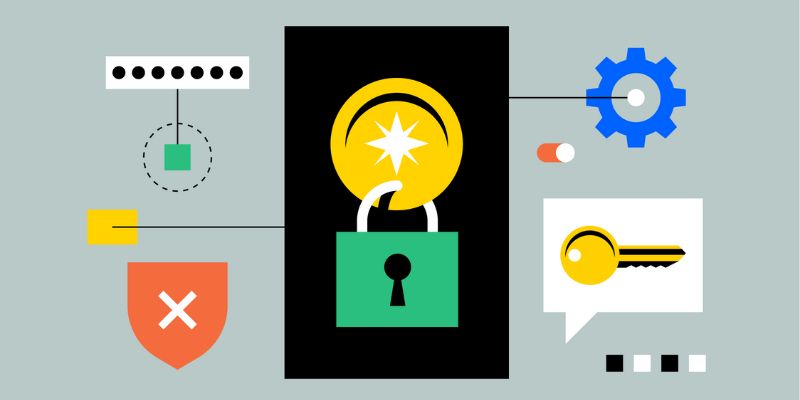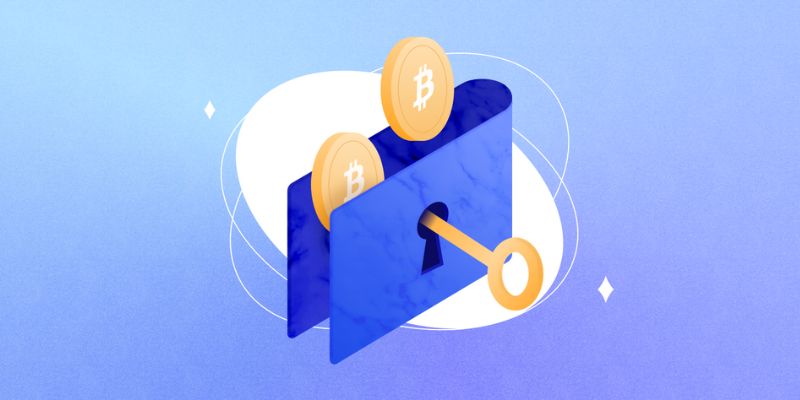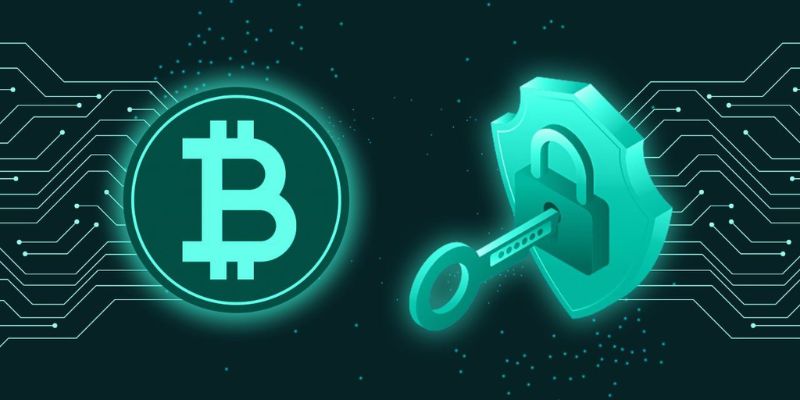In the untamed digital frontier, where fortunes soar and dip with each tick of the clock, how to keep your crypto safe is not just a consideration; it’s a must-do for every savvy investor. Dismiss this, and you might as well throw open your vault’s doors and invite the cyber thieves in for tea. Fear not, I’ve strategized five unbreakable methods that will shield your digital wealth like an impenetrable fortress. From mastering cold storage wallets to sidestepping the snares of cunning scammers, I’ll guide you through the crucial steps to secure your digital gold. With my guidance, peace of mind isn’t just a dream—it’s your new reality. Grab your digital armor and let’s fortify your crypto stash!
Embracing the Fort Knox of Crypto: Cold Storage Wallets
Choosing the Right Cold Storage Solution
A cold storage wallet is like a secret vault. It keeps your digital money secure. Picking the best cold storage is vital. Look for one that meets your needs for storage and security. You should use cold storage wallets for large amounts. The hardware wallet security they offer is top-notch. They’re like safes for your private key.
When shopping, compare different cold storage wallets. Think about Trezor or Ledger Nano S. They both have their advantages. Trezor is good for ease of use. Ledger has a solid track record. Do your homework. See which matches your privacy and security needs.
Your wallet’s goal is to avoid unauthorized access. It acts as a barrier. Only you can open it with your private key. If someone else gets it, it’s game over. Keep your private key a secret. Also, make sure your wallet can handle multi-factor authentication. It adds a layer of safety.
The Essentials of Managing Your Backup Seed Phrases
A backup seed phrase is a master key. It lets you access your crypto if something goes wrong. Say you lose your wallet. You can get back your precious coins with the seed phrase. Write your backup seed phrase on paper. Never store it on any device connected to the internet.
Here’s a pro tip: Store your seed phrase in more than one place. Think about a safe or a bank deposit box. Just like you wouldn’t keep all your eggs in one basket. Your seed phrase is too important. Make sure it’s safe from fire, water, and other disasters.
Managing your seed phrase is crucial. It makes sure you can always get to your money. Be careful when you handle it. Lock it up but remember where you put it. If it falls into the wrong hands, they can steal your wealth without a trace. This is part of the crypto security best practices.
Remember, in crypto, you’re your own bank. You must take care of your cash like it’s gold. Use cold storage wallets. Guard your backup seed phrases. Then, you can rest easy knowing your digital wealth is safe.
The Digital Shield: Hardware Wallets and Their Security Features
Ledger Nano S vs. Trezor: Which One Suits Your Needs?
When keeping crypto safe, choosing the right hardware wallet is crucial. The Ledger Nano S and the Trezor are top picks. They both guard your private keys offline, making it hard for hackers to get your digital cash. So, what’s the difference?
The Ledger Nano S is known for its sturdy design and user-friendly interface. It supports many cryptocurrencies. This means your diverse digital wealth stays in one place. With a built-in secure chip, your private keys have an extra layer of defense. It’s like having a personal vault!
Trezor, on the other hand, takes pride in being the first hardware wallet. It has a simple design and easy-to-understand features. Trezor offers an open-source environment, meaning that tech-savvy users can dig into its code. This makes it highly transparent and allows for community-driven security improvements.
Now, it’s all about what fits your lifestyle. Want a wide range of crypto support and a robust build? Go for the Ledger Nano S. If transparency and open-source code speak to you, choose Trezor.
Implementing Multi-factor Authentication for Additional Security Layers
Let’s beef up your digital shield with multi-factor authentication (MFA). This adds more steps to the login process. It goes beyond just entering passwords, which alone are risky. Hackers can crack them or trick you into giving them up.
How does MFA safeguard your assets? It needs extra proof before accessing your wallet. This could be a code from your phone or a fingerprint. Even if a thief gets your password, they can’t get in without this second key. It’s like having a guard check two IDs before letting someone into your digital house.
Setting up MFA is easy and it’s a step you shouldn’t skip. Most hardware and software wallets offer this feature. Enable it, and sleep well knowing your crypto is under lock and key.
To wrap it up, remember: Your crypto deserves elite protection. A hardware wallet like Ledger Nano S or Trezor physically locks your private keys away. With MFA, you add an invisible, yet strong, barrier against cyber threats. It’s your wealth, your rules, and your peace of mind. Keep it locked, keep it safe!
Transacting with Confidence: Ensuring Secure Crypto Exchanges and Smart Contracts
Navigating Secure Exchanges and Spotting Fake Platforms
When dealing with crypto, your money’s safety is top-notch. We all want that. Secure exchanges are key to this. They are like a safe house for your digital bucks. Keep a sharp eye. Here’s how to spot the good ones.
First, look for exchanges that have a strong rep. Ask around. People who’ve been in the game for a while know the drill. Next, check if they follow strict rules, like KYC. This stands for “Know Your Customer”. This means they make sure their users are real folks. No shady business allowed.
Also, make sure they use things like multi-factor authentication. This is like a double-lock for your account. Even if someone gets your password, they can’t get in without your phone or your fingerprint.
A big red flag is if a platform doesn’t have clear info about who runs it or where it is located. Let’s be real, would you give your cash to a stranger in a mask? No way. So don’t trust a faceless website with your crypto.
Now, use these tips the next time you’re about to trade. Keeping these in mind, you’ll stay sharp and keep your coins safe.
The Role of Smart Contract Audits in Protecting Your Assets
Smart contracts are like robot lawyers. They’re not people, but they make sure deals go as planned. Like any contract, they need to be tight. No holes or errors. We call this process an audit. Just as with your taxes, you need it done right.
First off, what’s a smart contract audit? Simply, it’s a check-up for code by pros. Think of it as a health check for your smart contracts. These folks dig deep to find bugs that could lead to trouble.
What happens if you skip this audit? Trouble. Just like a house, if the foundation isn’t solid, things could fall apart. In the crypto world, bugs can mean losing your money. Not cool, right?
So, how do you get a smart contract checked? Find experts who know cryptography like the back of their hand. They will pull apart the code, line by line. They make sure everything adds up.
An audit could save your bacon down the line. Don’t cut corners when it comes to checking these contracts. It’s not just about finding mistakes. It’s about peace of mind. Knowing that deal will go exactly as you expect, with no surprises.
Keeping these strategies in your pocket, you’re set to handle crypto like a boss. Just remember, safety in the crypto world is like a seatbelt. It’s a no-brainer, and you’ll thank yourself for it later.
Vigilance in the Virtual World: Avoiding Scams and Upholding Privacy
Recognizing and Avoiding Phishing Scams and Ponzi Schemes
Crooks want your crypto! To keep your digital gold safe, let’s get smart on scams, fast. Let’s start with phishing. What is phishing? Phishing is when someone tries to trick you into giving them your private info. This can be via email, fake websites, or messages.
Now, I’ll give you the magic tricks to spot these sneaky scams. They often look legit, but misspellings, weird email addresses, or links that smell fishy are red flags. Never click on odd links or share your private key. Your private key is like the secret code to your crypto vault. Guard it with your life!
Next up, spooky Ponzi schemes. What’s a Ponzi scheme? It’s a fake investment where the money from new investors pays off the old ones. It works until it crashes, and most people lose their money. Watch for deals too good to be true, like big money fast. Real talk: easy money is usually a lie.
How can you protect yourself from these nightmares? Easy. Do your homework. Trust your gut. If an offer makes you feel uneasy, walk away. That’s your inner security chief talking. Listen well.
Ensuring Safe Internet Practices and Utilizing Anti-Virus Protection
In the crypto world, a strong defense is your best offense. Safe internet habits are your shield. What are safe internet habits? Think of it as a safety dance for web browsing. Only visit sites you trust. Keep your software updated like a boss. Use strong passwords that even a computer can’t guess.
Now, for your secret weapon: anti-virus! Your computer can catch a virus faster than a sneeze in cold season. Why is anti-virus important? It snags nasty bugs before they bite. Which means they can’t steal your crypto stuff. Make sure to pick a good one like you pick a ripe apple. One that’s got a name for kicking virus butt.
Remember, scammers and bad software are hiding in plain sight. They’re like the boogeyman, but for your wallet. Don’t let them get you. Stay sharp, stay updated, and keep your crypto locked down tight. With these tips, you’re on your way to being a crypto-guarding superstar!
We dug deep into keeping crypto safe, from cold storage wallets to smart contracts. Each section showed how to protect your digital coins. Whether choosing a hardware wallet like Ledger Nano S or Trezor, or making sure exchanges and contracts are secure, you’ve got the tools. Remember, scam artists are out there, so stay sharp and use good net safety.
To wrap up, always put security first with your crypto. Use strong wallets, double-check every exchange, and keep those seed phrases locked down. Stay safe online and your crypto will thank you. Trust this guide, stay alert, and you’ll enjoy peace of mind in the crypto world.
Q&A :
How can I ensure the security of my cryptocurrencies?
Securing your cryptocurrencies involves a combination of practices that safeguard your digital assets from unauthorized access and theft. Steps include using hardware wallets for storing large amounts of cryptocurrencies, enabling two-factor authentication for online exchanges, keeping your private keys offline, avoiding public Wi-Fi when making transactions, and regularly updating your software to patch any security vulnerabilities.
What are the best practices for storing cryptocurrencies safely?
The best practices for storing cryptocurrencies include using a hardware wallet for long-term storage, backing up your wallet regularly, writing down your recovery phrases and storing them in a secure location, using strong, unique passwords for your online wallets, and spreading your assets across multiple wallets to minimize risk.
Are hardware wallets the safest option for crypto storage?
Hardware wallets are widely considered to be one of the safest options for storing cryptocurrencies as they keep private keys offline and are immune to computer viruses that could potentially steal from software wallets. However, it is important to purchase these devices from reputable manufacturers and ensure that they are kept in a secure physical location to prevent loss or theft.
Can two-factor authentication significantly boost the security of my crypto?
Two-factor authentication (2FA) adds an additional layer of security beyond your password by requiring a second form of verification, typically through a text message, email, or an authenticator app. This significantly reduces the risk of unauthorized account access, as an attacker would need both your password and your second factor to log in.
How do regular software updates contribute to keeping my crypto safe?
Regular software updates are crucial in keeping your crypto assets safe as they often include patches for security vulnerabilities that could be exploited by hackers. By keeping your wallet software, exchange apps, and even your computer’s operating system up-to-date, you minimize the risk of falling victim to new threats and maintain a strong defense against unauthorized access to your funds.



